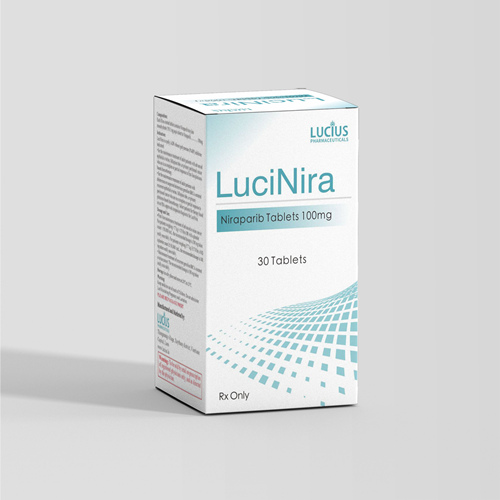What is Niraparib? - A Detailed Explanation of the Role of Niraparib in Treating Gynecological Tumors such as Ovarian Ca

What is Niraparib? - A Detailed Explanation of the Role of Niraparib in Treating Gynecological Tumors such as Ovarian Cancer
Niraparib, also known as Zejula, is a PARP inhibitor that is widely used in the treatment of gynecological tumors such as ovarian cancer, fallopian tube cancer, and primary peritoneal cancer. As a targeted therapeutic drug, Niraparib plays an important role in the treatment of these cancers. The following will conduct a detailed discussion on the pharmacological effects, indications, dosage, etc., of Niraparib.
I. The Pharmacological Effects of Niraparib
As a PARP (polymerase) inhibitor, Niraparib mainly inhibits the activity of PARP enzymes, blocking the function of the DNA double-strand repair system, thereby damaging the genomic stability of cancer cells and ultimately leading to the apoptosis of cancer cells. Niraparib acts specifically on tumor cells and causes relatively less damage to normal cells, so it has good safety during treatment.
II. The Indications of Niraparib
Niraparib is mainly used to treat recurrent and advanced diseases in ovarian cancer patients who have received chemotherapy. In addition, Niraparib has also been approved for the treatment of fallopian tube cancer and primary peritoneal cancer. For patients with these gynecological tumors, Niraparib can provide an effective treatment option.
III. The Dosage of Niraparib
The dosage of Niraparib depends on the patient's weight, physical condition, and other specific circumstances. The generally recommended dosage is to take it orally once a day for a certain period. During the use of Niraparib, doctors will monitor the patient's specific situation and adjust the dosage and treatment plan.
IV. The Adverse Reactions and Precautions of Niraparib
As a drug, Niraparib may be accompanied by some adverse reactions during the treatment process, such as anemia and a decrease in platelet count. When patients receive Niraparib treatment, they need to have regular relevant examinations to monitor the body's reaction. In addition, during the use of Niraparib, patients need to follow the doctor's guidance and avoid drug interactions with other medications to ensure the therapeutic effect.
In general, as a new targeted therapeutic drug, Niraparib brings new hope for the treatment of gynecological tumors such as ovarian cancer, fallopian tube cancer, and primary peritoneal cancer. When using Niraparib, patients should pay close attention to the dosage and adverse reactions of the drug and actively cooperate with the doctor's treatment plan to achieve better therapeutic effects. If necessary, you can consult the Dingxiang customer service.
The following are several case Q&A to help you better understand the use of Niraparib:
Question: I am a patient with ovarian cancer who has already received chemotherapy. Now my doctor recommends that I use Niraparib. I want to know if it can significantly extend my survival period.
Answer: As a PARP inhibitor, for ovarian cancer patients who have received chemotherapy, especially those with recurrent and advanced diseases, Niraparib can have a positive effect on disease control by inhibiting the DNA repair of cancer cells. However, each patient's condition and physical condition are different, and it does not necessarily guarantee a significant extension of the survival period. But many patients have effectively controlled their condition and improved their quality of life after using it. The specific treatment effect still depends on the individual situation. It is recommended that you follow the doctor's treatment advice and have regular examinations to observe the treatment effect.
Question: I experienced the adverse reaction of anemia while using Niraparib. Is this serious? What should I do?
Answer: Niraparib may indeed cause adverse reactions such as anemia. The severity of anemia varies from person to person. If you experience symptoms of anemia, you should inform your doctor in a timely manner, and the doctor will evaluate your situation. It may be necessary to adjust the dosage of Niraparib or take other measures to relieve anemia, such as supplementing iron. Regular blood tests are important during the use of Niraparib to detect and deal with adverse reactions in a timely manner.
Question: I have primary peritoneal cancer, and my doctor prescribed Niraparib for me. Can I take other medications at the same time?
Answer: During the use of Niraparib, taking other medications may cause drug interactions, affecting the treatment effect or increasing the risk of adverse reactions. Therefore, before taking other medications, be sure to inform your doctor of all the medications you are using, including prescription drugs, over-the-counter drugs, health products, etc. The doctor will judge whether it is possible to take them simultaneously based on the nature of the drugs and your physical condition and give corresponding suggestions. Do not decide to take other medications on your own to ensure the safety and effectiveness of the treatment.

